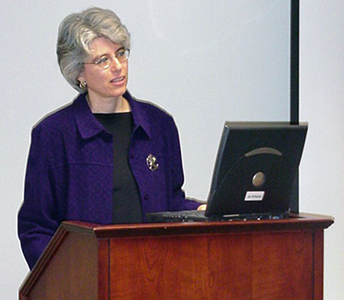A central goal of education is to produce lifelong learners. Lifelong learners require information skills. They are aware of the information ecology of their field. They recognize when they need information, address that need independently, and incorporate new information into their personal knowledge base. Efficiency in identifying and using quality information sources is a critical skill in which librarians excel, and enjoy teaching.
The American Library Association is revising their 2000 Information Literacy Standards for Higher Education and has released drafts of their new Framework for Information Literacy for Higher Education. The scheduled release of the Framework this fall provides an opportunity for librarians and health sciences faculty to revisit integration of information literacy instruction into our curricular programs.
 Teaching faculty often ask HSLS liaison librarians to provide class instruction when they observe evidence that students need more information skills to complete their classwork. Librarians usually deliver instruction through “one-shot” or multiple lectures, or online modules for independent student use. Information literacy assignments can provide opportunities for information skill building, support completion of other class assignments, and build awareness of information literacy as an essential professional skill.
Teaching faculty often ask HSLS liaison librarians to provide class instruction when they observe evidence that students need more information skills to complete their classwork. Librarians usually deliver instruction through “one-shot” or multiple lectures, or online modules for independent student use. Information literacy assignments can provide opportunities for information skill building, support completion of other class assignments, and build awareness of information literacy as an essential professional skill.
Instruction at the request of the individual professor is good, but doesn’t guarantee all students the opportunity for professional information literacy attainment. Students can begin their capstone project—an essay, research study, thesis, or dissertation—without the independent information skills required for the task. Advisors may refer them to the library for help, which is provided through individual consultation. The Framework calls for “a wider and deeper integration of it (information literacy) within the formal academic curriculum,” which would reduce the burden on students of having to learn these fundamental information skills when they would rather be engaged in higher level analysis and synthesis of information.
HSLS librarians have participated in a series of internal teaching enhancement workshops, and are available to collaborate with you in and out of the classroom in information instruction. Consider how instruction on topics such as finding and managing information, information ethics and legal issues (copyright, plagiarism avoidance), or systematic review search methods could benefit your students, and then contact your library liaison for more information.
~ Barbara Folb